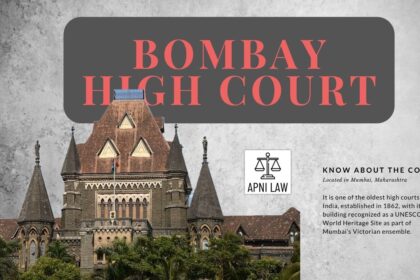Code: Section 49 – Bharatiya Sakshya Adhiniyam (BSA)
In criminal proceedings, the fact that the accused has a bad character, is irrelevant,
unless evidence has been given that he has a good character, in which case it becomes
relevant.
Explanation 1.—This section does not apply to cases in which the bad character of
any person is itself a fact in issue.
Explanation 2.—A previous conviction is relevant as evidence of bad character
Explanation of Section 49 – BSA
Section 49 of the Bharatiya Sakshya Adhiniyam (BSA) sets a general rule: in criminal trials, the accused’s bad character cannot be used as evidence against them. This ensures that judgments are made based on facts and the charges in question—not a person’s reputation or prior conduct.
However, if the accused introduces evidence of good character (for example, to support a claim of innocence), then the law permits the prosecution to introduce evidence of bad character in response. This helps maintain fairness and prevents the court from receiving a one-sided portrayal of the accused’s character.
Explanation 1 clarifies that this rule does not apply if character is directly at issue in the case—for instance, in defamation suits or when habitual criminal behavior is part of the charge.
Explanation 2 confirms that a prior conviction can always be introduced as evidence of bad character, regardless of whether the accused discusses their character during trial.
Illustration
Example 1: Accused Presents Good Character
A person accused of fraud tells the court they are a law-abiding individual who has always conducted business honestly. This opens the door for the prosecution to present evidence of past dishonest conduct, including a previous fraud conviction, under Section 49.
Example 2: Prior Conviction Admissible
Even if the accused says nothing about their character during the trial, the prosecution may submit proof of a past conviction. This is allowed under Explanation 2 of Section 49 and can be used to demonstrate a pattern of behavior.
Common Questions and Answers on Section 49 – BSA
Q1. Can the prosecution bring up bad character without the accused mentioning their character?
No. Unless the accused introduces evidence of their good character, the prosecution is not permitted to present evidence of bad character—except for prior convictions, which are admissible under Explanation 2.
Q2. What counts as a fact in issue where character becomes directly relevant?
When the case involves determining someone’s character as part of the central issue—for example, in defamation or criminal cases involving repeat offenders—the character becomes a fact in issue and is relevant from the start.
Q3. Does this section apply to civil cases?
No. Section 49 applies only to criminal proceedings.
Q4. What is the purpose of this section?
The section is intended to prevent trials from being influenced by prejudices about a person’s character unless such information is made relevant by the defense or is inherently part of the case.
Conclusion
Section 49 of the Bharatiya Sakshya Adhiniyam (BSA) ensures a fair trial by restricting the use of character evidence unless it’s directly relevant or introduced by the accused. It reinforces the legal principle that individuals should be judged based on the facts of the specific case, not on assumptions from their past behavior or public image.








